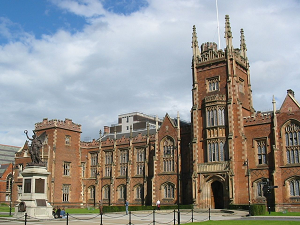
By Michael McHugh, PA.
Students should not face undue pressure to accept offers from universities and higher education providers due to the pandemic, Northern Ireland's economy minister Diane Dodds said.
She has written to more than 17,500 who have applied for courses through Ucas to reassure them of this position and to set out their options for the coming academic year.
The minister said: "I appreciate that students find themselves in a very difficult and unprecedented position this year as a result of the pandemic.
"Decisions made by students when they first thought of what they had hoped to do this coming academic year may now have changed and they may be revaluating their next steps."
Teachers in Northern Ireland will predict the grades they think pupils would have achieved in GCSE, AS and A-level exams which were cancelled due to coronavirus.
Ms Dodds said: "At the beginning of this pandemic, I was concerned that some universities across the UK were issuing unconditional or incentivised offers to prospective students, potentially putting them under pressure to accept the offer.
"I, along with ministers from around the UK, have been working with providers to ensure that students will not be put under any undue pressure by UK higher education providers.
"My message to any student who has received an unconditional offer is: please consider whether this is the right provider and course for you, before you make a decision."
Meanwhile, exams body CCEA has consulted on the appeals process for this summer's awarding of results.
Koulla Yiasouma, Northern Ireland Commissioner for Children and Young People said: "Whilst I welcome CCEA moving quickly to provide clarity to young people about the exams, I am concerned young people's rights are not protected in the proposed appeals arrangements and it is not acceptable that there is little to no opportunity for young people to exercise their right to appeal."

Koulla Yiasouma
She said the response from young people indicated concerns about potential teacher bias; the variation and range in evidence upon which teachers and schools will make their assessments; how schools and CCEA will standardise grades and whether final grades will be a fair and accurate representation of what students would have achieved had they been able to sit exams.


 Shock over record number of attacks on ambulance crew
Shock over record number of attacks on ambulance crew
 Police investigate petrol bomb attack at Co Antrim flat
Police investigate petrol bomb attack at Co Antrim flat
 Benn to discuss legacy issues with Harris at Hillsborough Castle
Benn to discuss legacy issues with Harris at Hillsborough Castle
 Legal papers lodged in challenge to Irish language signs at Belfast station
Legal papers lodged in challenge to Irish language signs at Belfast station